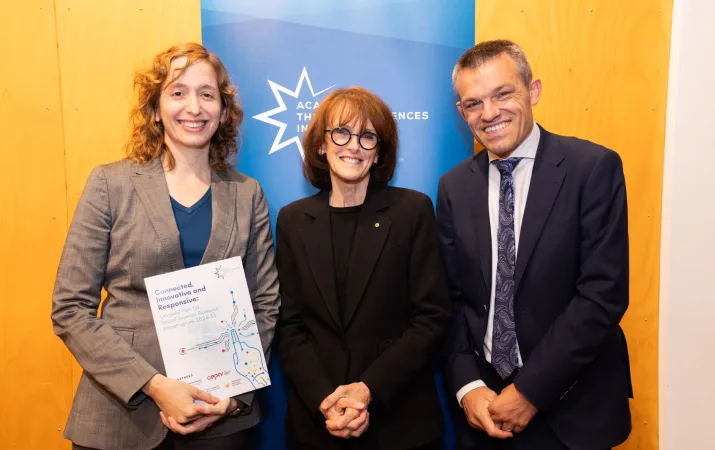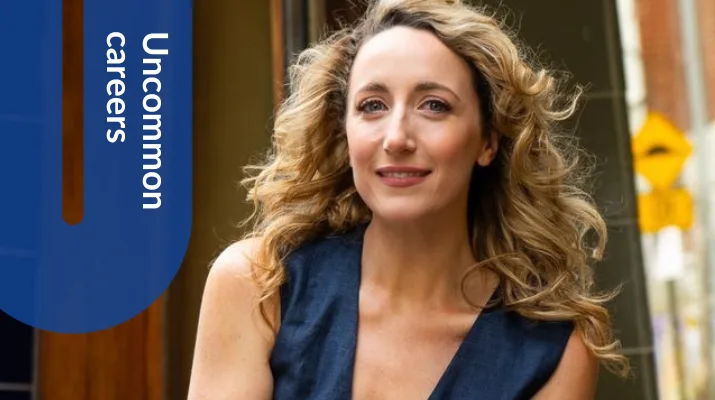What is social science?
By Chloe Cann
Curious about the social sciences, but puzzled by what they actually are? You’re not alone. We spoke to an expert about the career prospects for graduates in this vast field of study.
Have you ever wondered why, despite near unanimous agreement among the globe’s scientists and overwhelming evidence, relatively little has been done to alter course over climate change?
Or pondered how the response to the COVID-19 pandemic varied so wildly across the globe?
Social scientists have the answer.
What are the social sciences?
So what exactly are the social sciences? Categorisation can vary across universities and organisations: some recognise psychology and economics as social sciences, for example, while others don’t. But at its most basic definition, social sciences are recognised as ‘the scientific study of human society and social relationships’ according to the Oxford English Dictionary.
Dr Chris Hatherly, CEO of the Academy of the Social Sciences in Australia, elaborates further: “The social sciences [are] basically the way in which people study, understand and influence human behaviour, human institutions, social structures, and social decision making,” he explains.
How many social sciences are there?
The Academy of Social Sciences in Australia recognises 12 broad fields of research as social sciences:
Built environment and design
Commerce, management, tourism and services
Economics
Education
Health sciences
History, heritage and archaeology
Human society
Indigenous studies
Language, communication and culture
Law and legal studies
Philosophy and religious studies
Psychology
Within the branches above you’ll find subjects as diverse as accounting, epidemiology, gender studies, archaeology, linguistics, sociology, and theology.
“It's a broad collection of disciplines, [but] there are a lot of unifying features,” Chris notes.

Why is studying social science important?
Looking at the big picture, it’s easy to see why studying social science is important, explains Chris.
“Without the social sciences and the people who deeply understand them, we will simply never make progress, or solve some of those really challenging problems that are sitting there,” he says.
“And as a society, we certainly need people who have that training [in social science]. I think it's really useful for everyone to have a grounding and an understanding of society and how it ticks.”
Beyond its importance for society as a whole, studying social science can also benefit your career, as it offers a broad range of highly desirable soft skills, notes Chris.
That ability to engage, to ask critical questions, and to express and convince and persuade—that's probably the thing that's inherent to almost all social science fields, and that's really what’s in demand in the marketplace.
"And we know from employer surveys that those are really sought after skills; general competencies that all employers are looking for, particularly as we move into automation, AI.”
And on the threat of AI, Chris highlights how studying social science could in fact help to ‘future-proof’ your career.
“We're already hearing [that] a lot of more technical jobs are going to become automated, so the ability to interact with human beings and engage effectively in a management context, or in a persuasive context, or in a human relations context… that's where people are going to remain absolutely vital.”
What is the best social science course to study?
Given that there are scores of different social science courses on offer, it might seem nigh on impossible to single one out. And if you’re feeling bamboozled, then you can schedule in a chat with one of our student advisors for some tailored advice.
While it’s safe to say there’s no perfect one-size-fits-all course to study, there are some things to take into account when trying to narrow down your list of options:
If a high salary is your primary motivating factor, then consider studying psychology or architecture.
If working remotely tops your list of priorities, then a career in HR, marketing, or exercise rehabilitation could be worth a look.
If aiming for the hallowed ‘work-life balance’ is critical to you, then a career in local government is a safe bet. To get your foot in the door, you could study management, or urban planning.
Overall, Chris notes that the prospects for graduates of most social sciences are strong, despite recent messaging.

“The previous federal government introduced something called the ‘Job-ready Graduates’ [package in 2020], and the narrative was ‘study STEM [Science, Technology, Engineering, Mathematics] otherwise you're wasting your life and you won't get a job,’” he says. “It was really damaging.”
Conversely, he says, that’s far from the truth. “There are better graduate salaries and there's better career security [compared to STEM subjects]; not in all disciplines, but if we think about anyone with a management, business, accounting, law, or psychology degree, in many cases, they're going to get snapped up much quicker and have much better career prospects than somebody with a Bachelor of Science.”
And the stats on that stack up too.
Equally, Chris notes, there are some exceptions to that rule, particularly where it concerns some social science courses that are more ‘generalist’ in nature.
“People who study and specialise in philosophy [for example], they're very employable in lots of industries, but it’s probably fair to say that there's not a huge number of directly applicable professional skills that are taught in some of those degrees. And there's not that many philosophy departments that are employing lecturers or philosophy researchers around, so it's very competitive."
What can you do with a social science degree?
Given social science’s “image problem”, Chris says there’s a bit of a misconception that social science qualifications don’t lead directly to jobs.
“One of the things we need to do is to help people understand that a very large proportion of the social sciences are directly affiliated with professions and careers,” he explains. “Accounting, law, psychology, journalism—there's a whole bunch of things there that are a one-to-one match with fields of professional endeavour. We need to really help people understand the value and the opportunities.”
Today, there are approximately 500,000 social science professionals (e.g. economists, accountants, lawyers, psychologists, etc.) and some 3 million social science graduates working in jobs across the economy, the top employment sectors being education, health, professional services and government.
And there’s a further 28,000 social scientist researchers in universities, and many more employed in business (e.g. consulting), government departments and agencies (e.g. the CSIRO) and community organisations.
Of the opportunities available, Chris notes: “Lots of public administration at state, federal or local government level is largely social science based. Human resource management, logistics even, there's a lot of social science there. I think it would be fair to say that at least 50% of the economy has elements of social science sitting behind it. The possibilities are almost endless.”
If you see a career in social sciences in your future, check out these humanities and social science courses, available online with leading universities.



